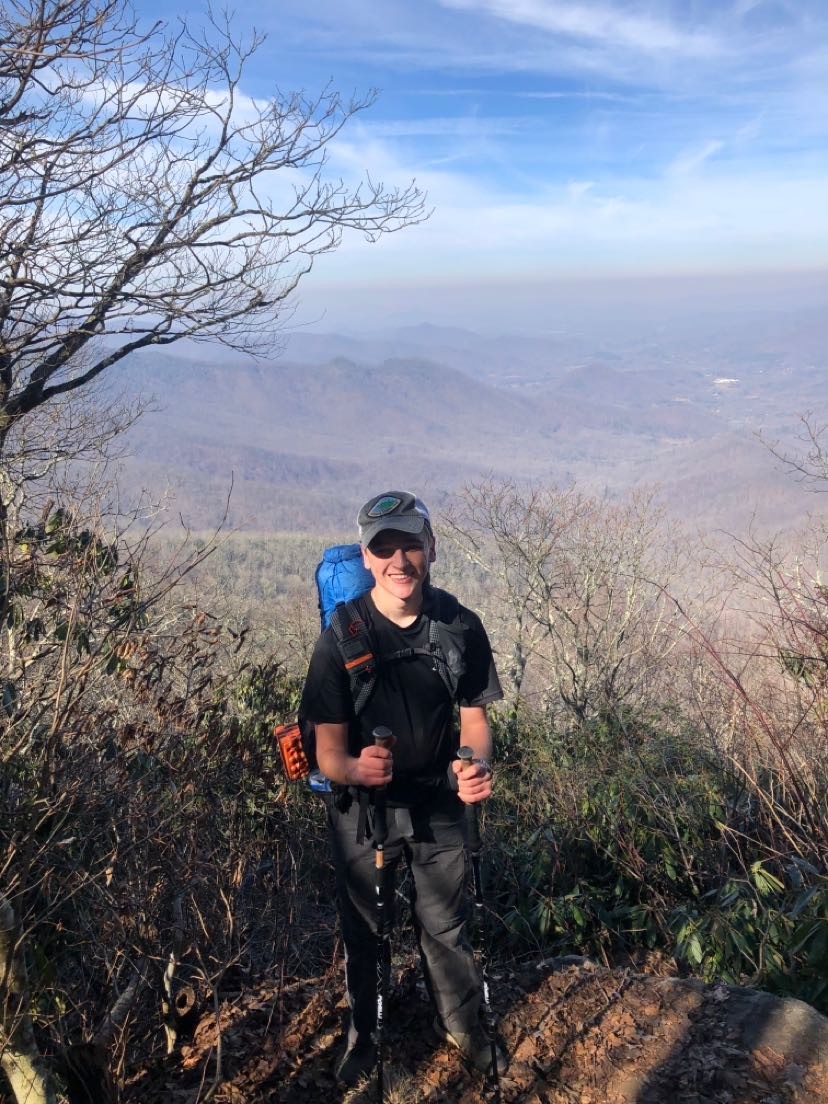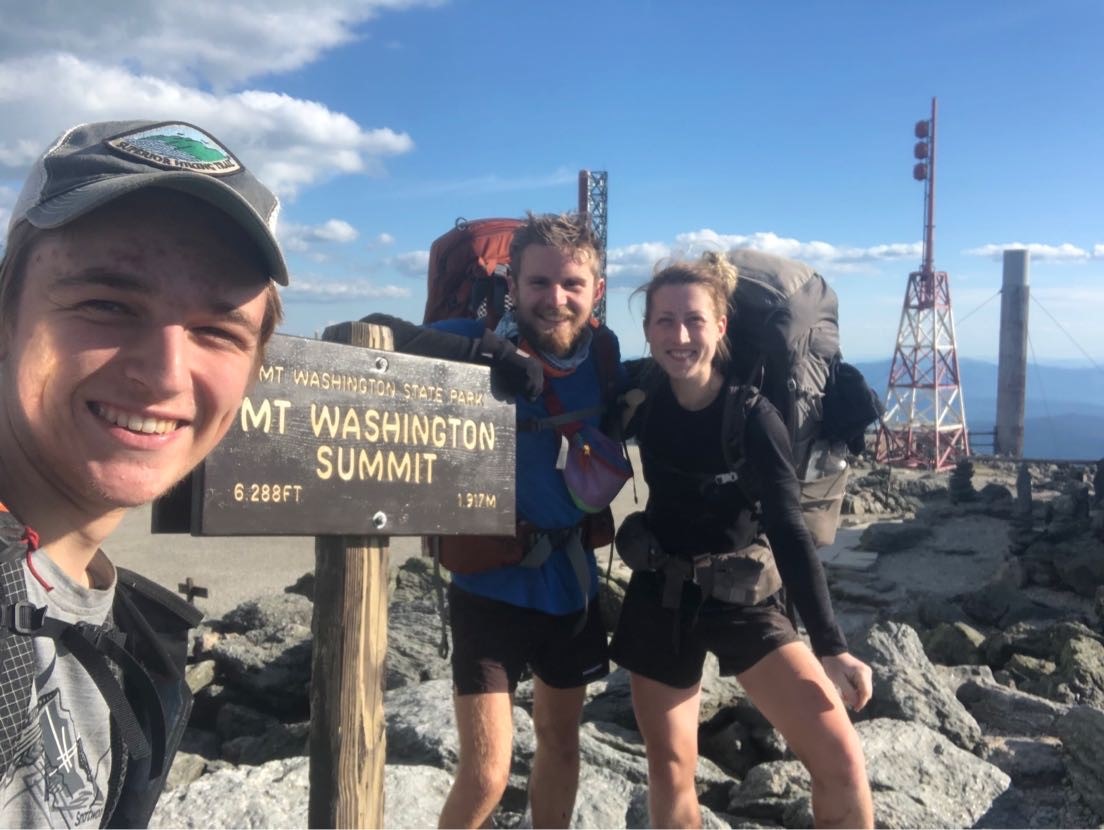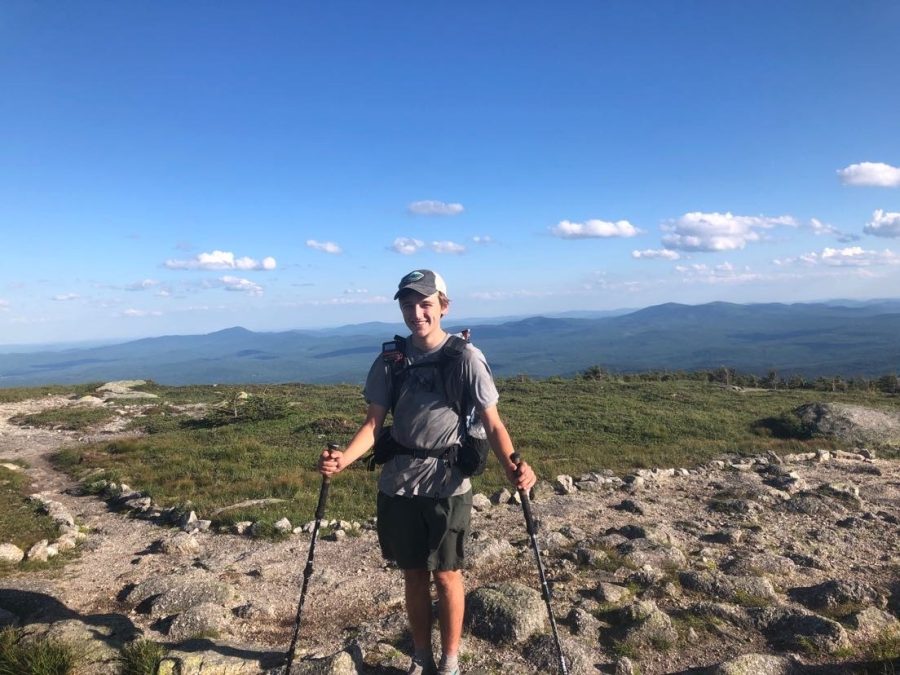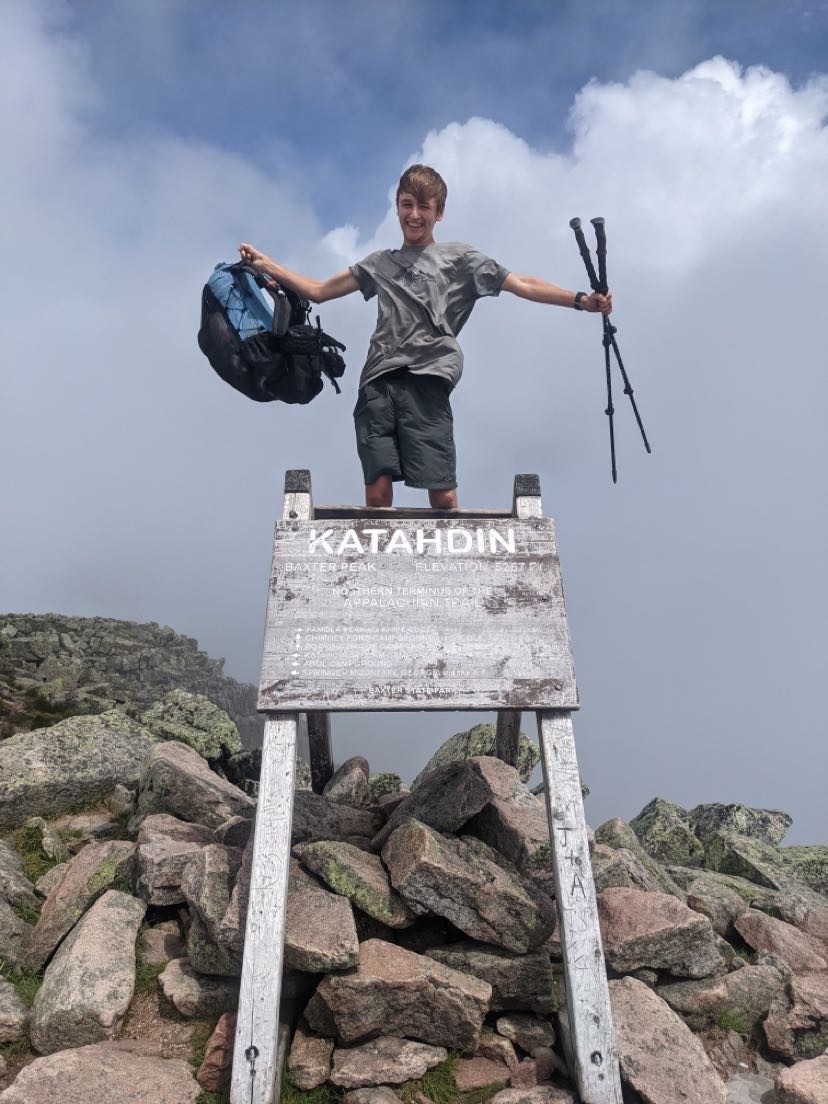Hiking the Appalachian Trail
Student Josh Wood’s experience of hiking over 2,000 miles
Many people enjoy hiking. Other people take a semester off school, fly to Georgia with a backpack and a passion and spend day after day on the trail, walking 2,192 miles along the east coast of the United States.
UW-Platteville junior Josh Wood took this leap of faith and started his journey on the Appalachian Trail in the spring 2021.
This popular route, starting in Georgia and ending in Maine, ranges through the Great Smoky Mountains and White Mountains.
It draws in hikers from all over the world to either taste a section or devour the entire trail. Wood landed in Georgia on March 3 and completed the trail by June 30.
Inspired by his experience on the Superior Hiking Trail in Minnesota, Wood took inspiration from further investigating backpacking and decided that the Appalachian Trail was the next step in his journey.
“I went on a backpacking trip end of senior year with a friend, that was the first time I had gone backpacking like that,” chuckled Wood. “I really enjoyed it, and before that trip I had been reading a lot about gear and what I needed to do to backpack and all that sort of stuff. I learned about through-hiking and I thought that was a really cool concept of going on a really long hike, and I just thought that the AT sounded really cool.”
With only two backpacking trips and a few family hikes under his belt, Wood continued this research to prepare for the four-month commitment of completing the entire trail, known as a through-hike.
Adhering to the “ultralight” hiking philosophy, his pack weighed about 25 pounds to start, containing only the essentials for traveling northward through country.
“The planning for a through-hike isn’t very significant, you want to make sure you have all of the gear that you need and you want to make sure that it works, so you test it out beforehand and you know how to use it, and then another big thing is making sure your life is taken care of while you’re away.”
Those who desire to complete the Appalachian Trail need to carve out time in their lives in order to travel and embark on their journey.
Before leaving, Wood needed to make sure his enrollment in college and respective classes would continue when he returned in the fall. His accelerated completion of degree requirements and an inability to attend classes in person provided an opportune semester to complete this quest.
“I was really excited, but I was also really nervous. I didn’t know if I was going to make it. I told all these people I was committing to this and I didn’t want to quit and have to come back and say I didn’t make it. I was mainly just excited.”
Starting out on the trail, Wood smoothly reached the shoe tree. He later joked that the pairs of hiking shoes hanging from the tree branches were from those who had already given up on through-hiking.
In reality though, they mark the grand success of hikers who have traveled down from Maine to Georgia. Wood would experience this feeling of achievement months later atop Mount Katahdin in Maine. Long days of hiking and sleepless nights of camping would lead him to this destination.

“The first couple weeks you’re very, very sore, and then it gets better. You’re always sore but it’s not terrible. You get used to it, at least,” remarked Wood.
The varying terrain from south to north contributed to this soreness, as different sections of the trail provided different challenges.
“It starts out … with lots of ups and downs, lots of rolling mountains … then you get to the Smokies and the trail follows the North Carolina – Tennessee border and the mountains get bigger. Once you get to Virginia, there are longer ridgelines but there’s still the rolling forest mountains. Pennsylvania gets pretty rocky and your feet get really beat up.”
Although committing to being at the will of the trail beneath their feet, hikers often have strong feelings about their favorite and least favorite parts of the hike. As Wood emphasized, Pennsylvania is known to be the worst state on the Appalachian trail because of the small but sharp pebbles. However, it leads way to the wonders of the White Mountains of the Northern states.
“You get to Vermont and then it starts to feel more different. There’s more evergreen forests and the mountains start getting bigger, and then there’s New Hampshire, which is my favorite part. You go through the White Mountains; they’re a lot larger, and they have super steep climbs. They’re kind of known for not having any switchbacks at all, so the trail goes straight up the mountain and straight down. You’re scrambling and it’s a lot more difficult but also really fun, especially at that point in the hike, and the views are better.”
Throughout the ascents and descents of the mountains, Wood experienced his own ups and downs. In addition to the soreness, parting ways with trail friends and occasional homesickness, interactions with wildlife provided their own excitement.
“I saw a couple rattlesnakes and a copperhead, which was scary but cool. For the copperhead, I kind of didn’t know what it was at first, and that one was far away. For the rattlesnakes, I almost stepped on one of them and I yelled. I was the most scared the night I had coyotes outside my tent, pacing back and forth.”
Without the excitement of unexpected trail visitors, Wood often found other ways to entertain himself while walking all day long.
“I’d usually start listening to music or podcasts or books partway through the day, I’d have conversations with the people I’m hiking with, but lots of it was kind of boring, too. You’re walking all day, and it definitely got old.”
The hiking community on the Appalachian Trail is one of the most rewarding parts of the experience, according to Wood. The popularity of through-hiking and camaraderie from enduring the journey easily brings people together, while the shared experience promotes strong bonds.
“Most through-hikers start alone and they’re all looking for friends to hike with, too. I would end up starting to hike with people when I found myself being at the same place with them multiple nights in a row, we’d at least go at a similar pace.”
In order to reinvent oneself on the trail, most individuals receive a “trail name” to identify themselves. This alone allows hikers to be more immersed in their new lives dedicated to the Appalachian Trail.
“Everybody gets a trail name. It becomes whatever you introduce yourself as. My name was ‘Cheesecurd,’ and it was literally just because I was from Wisconsin and I had been talking about cheese curds.”
Wood explained that the trail names give hikers a sort of anonymity. “It makes being on the trail a whole different world.”
This also develops the bond between hikers who stick with one another and conquer the trail. Sharing the unique success provides an exclusive connection to the individuals who seek out the experience alone but are then brought together.
“It was supposed to clear up, so we extended our day to get up and over the highest point on the AT, Clingman’s Dome. The weather cleared up and it was super, super windy and it just felt so epic. To get over it, to get a good view and to push ourselves.”
days to spend time in Maine, just because it was so pretty and we were kind of rushing through it, but I still wasn’t disappointed with it.”
These incredible moments, only to be experienced to the same extent by other through-hikers is the culmination of commitment and dedication to a divergent lifestyle. Getting lost mentally, but not physically, is an unforeseen reward of drifting off into the journey.
Given all the time in the world to think, Wood came to the realization that the outdoors are essential to his future. Returning to Platteville this fall semester to continue progress on his Software Engineering degree, he has another goal in mind to combine his two passions.
“Life is a lot different when you’re not paying attention to 90% of the things you would normally pay attention to.”
“I also want to do a career in the outdoors. I do know that computers can be applied to a lot of things, and even if I didn’t end up doing something with computers, I think it’s good that I’ll have that degree for the added security.”
Delving into the trail lifestyle also motivated Wood to complete the journey, and he ended up completing the Appalachian Trail about a month earlier than originally planned.
While exact plans for the future are up in the air, Wood has his hiking priorities in order. His next goal is completing the Continental Divide and Pacific Crest trails in conjunction with the Appalachian Trail to achieve the Triple Crown, now that this journey has been crossed off his bucket list.
“I’m pretty happy with how it went; I think towards the end, the last two weeks or so, we really pushed really hard because we had set a deadline for ourselves. I kind of wish I would have taken a couple more
“I think I had overestimated how difficult (hiking the AT) would
be. I think a lot of people underestimate it and I had read that, and probably done more research than most people. I had really never hiked in mountains before this and I think that thinking about that so much had made me overestimate how difficult the terrain was. I was pleasantly surprised. It was really hard, but I could still do it.”

With a general knowledge of gear, routes, and the wilderness, a passion for the hiking can guide anyone from Georgia to Maine to complete the Appalachian Trail. Escape to the east and enjoy the trail, views and company. As for Cheesecurd,
Wood recommends having at least a little backpacking experience before embarking on the entire Appalachian Trail, but not much more than that is necessary. This hike is accessible to almost anyone, and the reward is indescribable.
“I feel like the thing is that you don’t need to be a super-experienced backpacker to do a long hike like that. I had only done two backpacking trips, and I think I was more experienced than a lot of people I talked to. I think a lot of the people out there aren’t what you would stereotypically think of as a hiker.”
“Being on the trail is a whole different world.”





